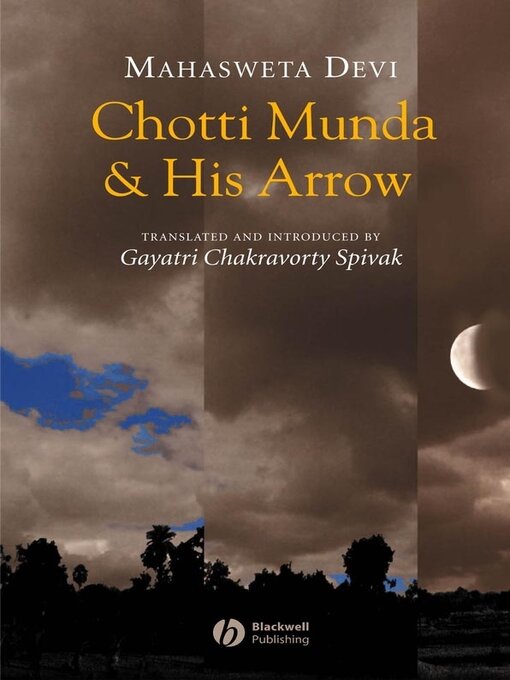Written in 1980, this novel by prize-winning Indian writer Mahasweta Devi, translated and introduced by Gayatri Chakravorty Sprivak, is remarkable for the way in which it touches on vital issues that have in subsequent decades grown into matters of urgent social concern.
- Available now
- New eBook additions
- New kids additions
- New teen additions
- Most popular
- Try something different
- Manga to Read (or Re-Read)
- Elections, Coups, & Sociopolitical Upheaval
- Celebrating Indigenous Peoples
- Manga
- See all
- Available now
- New audiobook additions
- New kids additions
- New teen additions
- Most popular
- Try something different
- See all

